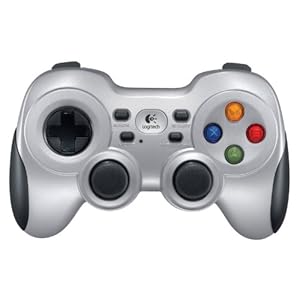It's a Samsung Smart TV, playing high-end PC games like The Witcher 2 without so much as a set-top box; they're delivered solely over the internet. More importantly, it's an existing TV that's already on sale, with only a firmware update on top. "We don't need special chips or hardware," Perry tells me, adding that the update has been in the works for over six months with engineers flying to and from Korea in the interim. Today, its just an experiment laid bare on a table, but next week it becomes real: At the Electronic Entertainment Expo in Los Angeles, Samsung will formally announce a partnership with Gaikai to introduce a cloud gaming service for its high-end televisions, and roll out a private beta soon afterwards.
That might not immediately sound like a game-changing announcement, but Gaikai executives are over the moon: Samsung is arguably the world's largest tech company "There isn't a bigger deal to do in cloud gaming," says Perry and it's not Gaikai's first rodeo. Samsung rival LG already committed to updating every one of its 2012 Cinema 3D television sets to include Gaikai back at CES, and the company believes it's going to be a strong differentiator. Back in Gaikai's spacious glass conference room, Perry has me imagine two TVs on a wall: "The TV on the right plays every video game ever made, the one on the left doesn't. The cost difference is nothing. That's why we think it's going to be compelling."
Quote:
However, to use a favorite expression of Perry's, there's a twist: If you've got a Samsung Smart TV, you won't be playing on Gaikai proper; You'll be playing on Samsung's Cloud Gaming service, powered by Gaikai's network. While Gaikai facilitates the transaction, negotiates rights to particular games, integrates them into the service, builds the UI, and even puts the physical server racks together, it's Samsung that's footing the bill and Samsung that reaps the rewards. Samsung will get a cut of the purchase price, just like a brick and mortar retailer would. The secret, the company tells me, is that each new partner pays for their own set of dedicated servers in Gaikai's cloud, such that every time there's a new company, the whole network expands that much more and thus lowers the latency to end users. Each partner that isn't using their full capacity at a given moment leaves that much additional bandwidth for others to stream their games, and as a result, Gaikai claims its service is now live in 88 countries. In short, while Gaikai is almost definitely competing with OnLive at some level due to the expanded focus, it seems like the company is still true to its roots: it's a business-to-business firm, and thus it's not a centralized Gaikai that's expanding, so much as a slew of prospective grey-label providers using Gaikai's network.
http://www.theverge.com/2012/5/31/3...tv-david-perry-interview-cloud-gaming-youtube






